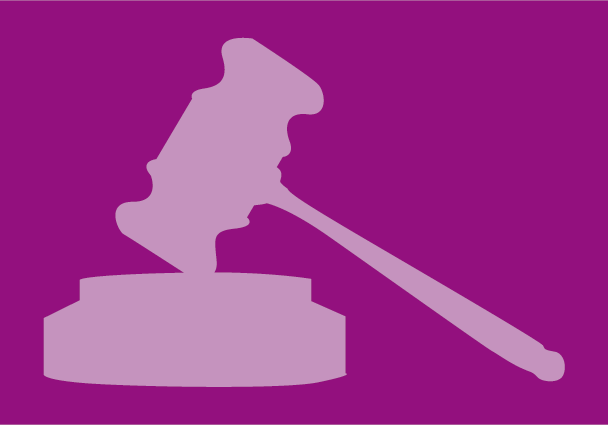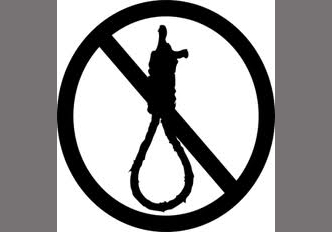
Dec 19, 2013 | News
The ICJ deplores the death sentences handed down by the People’s Court of Hanoi on December 17 to two former shipping executives and urges the government of Viet Nam to desist from carrying out the planned executions.
Viet Nam National Shipping Lines (Vinalines) former chairman Duong Chi Dung and former general director Mai Van Phuc were found guilty of embezzling nearly USD $1 million from the state-owned company and sentenced to death.
“The announced death sentences fly in the face of encouraging human rights developments in Viet Nam, such as the State’s signing the Convention Against Torture and other Cruel Inhuman or Degrading Treatment or Punishment in November,” said Sam Zarifi, ICJ’s regional director for Asia and the Pacific. “This is a major setback at a time when it appeared Viet Nam was making progress towards ending capital punishment.”
The ICJ considers the death penalty to constitute a violation of the right to life and the right to be free from cruel, inhuman or degrading punishment.
Following the Human Rights Council’s Universal Periodic Review in 2009, Viet Nam agreed to revise its legislation on the death penalty in line with the country’s international obligations.
Since then it has reduced the number of crimes punishable by death, and changed its method of administering the sentence from firing squad to injection by lethal substance.
It is estimated that more than 600 people remain on death row in the country. Most were convicted on drug-related offences.
“At present, approximately two thirds of the world’s countries have already either abolished capital punishment or have moratoriums on executions,” said Zarifi. “It is regrettable that Viet Nam has chosen to exclude itself from this global trend.”
The ICJ calls on the Government of Viet Nam to immediately put in place a moratorium on its practice, with a view to abolishing the death penalty, as demanded by the United Nations General Assembly in repeated resolutions on the question.
CONTACT:
Sam Zarifi, ICJ Asia-Pacific Regional Director, (Bangkok), t:+66 807819002, e-mail: sam.zarifi(a)icj.org
Craig Knowles, ICJ Media & Communications, (Bangkok), t:+66 819077653, e-mail: craig.knowles(a)icj.org
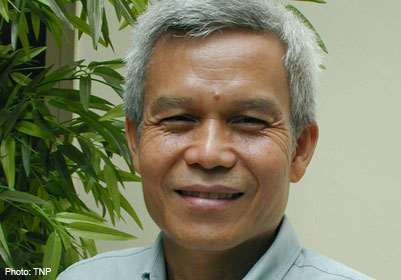
Dec 14, 2013 | News
The ICJ today urged the Lao PDR government to reverse its inaction in determining the fate of community activist Sombath Somphone, who was allegedly subjected to enforced disappearance a year ago.
In a legal memorandum on the one-year anniversary of Sombath’s enforced disappearance, the ICJ called on the Lao authorities to fulfill their country’s obligations under international law and carry out a thorough and impartial investigation into his whereabouts.
It also said the government must cooperate with regional and international human rights mechanisms, particularly the ASEAN Intergovernmental Commission on Human Rights (AICHR) and the UN Working Group on Enforced and Involuntary Disappearances.
“It is deplorable that one year after Sombath Somphone was abducted after being stopped by traffic police, the public prosecutor has yet to institute formal
or criminal proceedings into his disappearance’’, said Sam Zarifi, ICJ Asia-Pacific regional director.
“The government of the Lao People’s Democratic Republic must immediately take effective measure to ensure animpartial and thorough investigation and bring justice to those responsible for crimes against Sombath Somphone,” he added.
Sixty-two-year old Sombath Somphone, Lao PDR’s most prominent community development advocate and a Ramon Magsaysay Award winner, was last seen on December 15, 2013, on a road in the capital Vientiane.
Closed circuit Television (CCTV) footage showed him being stopped at a police checkpoint, exiting his vehicle, getting into another vehicle with unidentified men and being driven away. He has not been seen since.
The Lao PDR government has denied any involvement in Sombath Somphone’s abduction. But reports released by police reveal a wholly inadequate investigation that lacks any credible explanation as to his fate or whereabouts.
In January this year, the ICJ called on the AICHR to play a proactive role in the case and to use the opportunity to address issues of enforced and involuntary disappearances in the region. To date, the AICHR has yet to take any meaningful action.
If the AICHR is to have any meaning, it must fulfill its mandate under Article 4, paragraph 1.11 of its Terms of Reference and develop a common position and strategy for tackling the widespread impunity of all acts of enforced disappearances in ASEAN, the legal memorandum said.
“An effective investigation, conducted in accordance with international standards, is essential in order that family members of Sombath Somphone and the public as a whole may discover the truth about his fate and whereabouts, and bring justice and reparation,’’ said Zarifi.
Background
Sombath Somphone is the founder and former director of the Participatory Development Training Center (PADETC), a non-governmental organization that supports holistic education and youth development as well as promoting eco-friendly technologies and micro-enterprises.
In October 2012, Sombath assisted the Lao government and non-governmental organizations convene an Asia-Europe People’s Forum (AEPF). The event was widely attended, drawing 948 participants from Lao PDR as well as other Asian countries.
It was the first time groups publicly criticized human rights abuses in Lao PDR, a Communist-run Southeast Asian country bordering Thailand, Cambodia, Vietnam, Myanmar and China.
The legal memorandum also covers the right of a family member to the right to information in such cases of enforced disappearances pursuant to both international standards as well as domestic laws in Lao PDR.
Recommendations
The key recommendations in the legal memorandum include:
(a) The public prosecutor, to launch a credible, prompt, thorough, impartial and effective investigation into the fate and whereabouts of Sombath Somphone. In the event that the public prosecutor fails to do so, an independent and credible authority should be established to undertake prompt, thorough and impartial investigation, consistent with international standards, into the alleged enforced disappearance as well as allegations of arbitrary detention, torture or ill-treatment;
(b) In furtherance of this investigation, the investigating authority should immediately seek and accept assistance from foreign experts on analysis of forensic evidence; and
(c) The investigating authority should provide relevant material and conclusions from any investigation to Sombath Somphone’s wife, to the extent compatible with the prosecution of the case.
CONTACT:
Sam Zarifi, ICJ Asia-Pacific Regional Director, (Bangkok), t:+66 807819002, e-mail: sam.zarifi(a)icj.org
Craig Knowles, ICJ Media & Communications, (Bangkok), t:+66 819077653, e-mail: craig.knowles(a)icj.org
Lao-Legal Memorandum-annex on the case of Sombath Somphone-advocay-2013 (download in pdf)
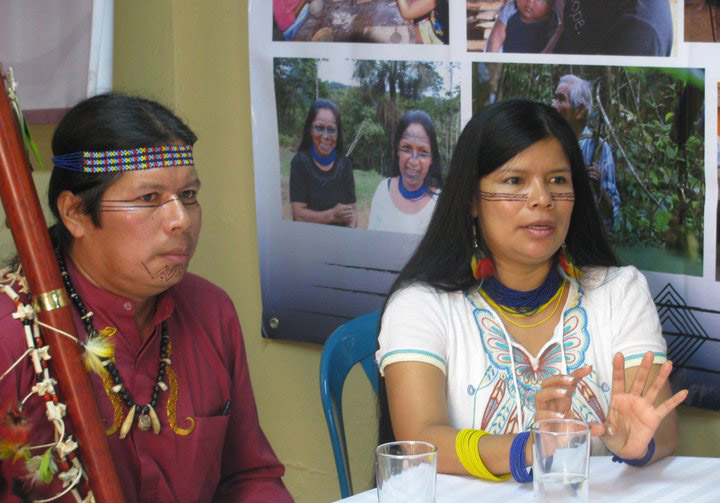
Dec 10, 2013 | Incidencia
La CIJ se suma al pronunciamiento de la Coalición Internacional de Organizaciones por los Derechos Humanos en las Américas y muestra su profunda preocupación por el cierre de la Fundación Pachamama en Ecuador.
Además, solicita que el gobierno ecuatoriano reconsidere su decisión y garantice a la Fundación Pachamama continuar con su labor en defensa de los Derechos Humanos a la brevedad posible.
Las organizaciones firmantes, integrantes de la Coalición Internacional de Organizaciones por los Derechos Humanos en las Américas que trabajamos frente al Sistema Interamericano de Derechos Humanos, así como otras organizaciones aliadas, mostramos nuestra preocupación y rechazo frente al cierre arbitrario de la Fundación Pachamama por parte del gobierno ecuatoriano.
Este pronunciamiento se suma a los de otras numerosas organizaciones, y a más de 9,000 personas en todo el mundo que han firmado la petición de Avaaz en rechazo a la medida del gobierno ecuatoriano.
El 4 de diciembre de 2013, la Policía se presentó en las oficinas de la Fundación Pachamama en la ciudad de Quito, y procedió a clausurar las instalaciones de la organización, informando en ese mismo instante de una Resolución del Ministerio de Ambiente que decide disolver la organización.
La decisión se tomó de manera arbitraria, en tan sólo un día, y sin seguir las reglas mínimas del debido proceso legal.
El Ministerio invocó el artículo 26 del Reglamento para el Funcionamiento del Sistema Unificado de Información de las Organizaciones Sociales y Ciudadanas, conocido como Decreto 16, por el que se prevé como causal de disolución “desviarse de los fines y objetivos para los cuales fue constituida la organización”, y “dedicarse a actividades de política partidista (…), de injerencia en políticas públicas que atente contra la seguridad interna o externa del Estado, que afecten la paz pública”.
El Ministerio de Ambiente señala que dichas causales aplican a la Fundación Pachamama, por haber participado en una manifestación en contra de la XI Ronda Petrolera, en la que supuestamente habrían tenido lugar actos de agresión contra autoridades internacionales. Sin embargo, la decisión no ofrece sustento probatorio alguno. La Fundación Pachamama, que efectivamente participó en la protesta contra la XI Ronda Petrolera, ha negado categóricamente su participación en ningún acto violento, por lo que el cierre se percibe como un acto de represalia por su posición.
La emisión del Decreto 16 fue cuestionada por diversas organizaciones de la sociedad civil y actualmente enfrenta varias acciones de inconstitucionalidad, no sólo por lo cuestionable de sus disposiciones, sino también por el alto margen de discrecionalidad que deja en el tratamiento de las organizaciones de la sociedad civil. Así, su aplicación al caso concreto adolece de vicios jurídicos graves. La decisión se tomó sin que hubiera un expediente administrativo abierto contra la organización, sin informar previamente a la organización de las acusaciones y darle la oportunidad de controvertirlas, y sin sustentar fáctica y probatoriamente las alegaciones.
Recordamos al Estado del Ecuador que, de acuerdo a la “Declaración de Naciones Unidas sobre Defensores”, “toda persona tiene el derecho individual o colectivamente, a promover y procurar la protección y realización de los derechos humanos y la libertades fundamentales”.
La Comisión Interamericana de Derechos Humanos ha advertido que los Estados deben garantizar que los órganos competentes para el registro y disolución de organizaciones no cuenten “con un amplio margen de discrecionalidad, ni con disposiciones que tengan un lenguaje vago o ambiguo que genere el riesgo de que la norma sea interpretada para limitar el ejercicio del derecho de asociación”.
Por lo anterior, mostramos nuestra preocupación y solicitamos enérgicamente al Estado ecuatoriano que reconsidere su decisión y garantice a la brevedad que la Fundación Pachamama pueda seguir con su labor de defensa de los derechos humanos y de la naturaleza, con las garantías para ello.
Organizaciones firmantes:
Amazon Watch, organización internacional
Amnistía Internacional, organización internacional
Comisión Internacional de Juristas, organización internacional
Asociación Interamericana para la Defensa del Ambiente (AIDA), organización regional
Centro por la Justicia y el Derecho Internacional (CEJIL), organización regional
Comité de América Latina y el Caribe para la Defensa de los Derechos de las Mujeres (CLADEM), organización regional
Luz Marina Monzón, Defensora de Derechos Humanos, regional
Plataforma Interamericana de Derechos Humanos, Democracia y Desarrollo (PIDHDD), organización regional
Asociación de Abogados de Derecho Indígena (AADI), Argentina
Observatorio de Derechos Humanos de Pueblos Indígenas, Argentina
Conectas Direitos Humanos, Brasil
Servicio Paz y Justicia, (SERPAJ), Brasil
Carlos Rodríguez Mejía, defensor de derechos humanos y profesor universitario, Colombia
Colectivo de Abogados José Alvear Restrepo (CCAJAR), Colombia
Alianza por tus Derechos, Costa Rica
Defensa de Niñas y Niños – Internacional, DNI, Costa Rica
Observatorio Ciudadano, Chile
Sergio Fuenzalida B., Coordinador del Programa de Derechos Humanos, Universidad Central de Chile, Facultad de Ciencias Jurídicas y Sociales, Chile
Fernanda Carrera Toscano, Periodista, Ecuador
Fundación Regional de Asesoría en Derechos Humanos (INREDH), Ecuador
Fundación de Estudios para la Aplicación del Derecho (FESPAD), El Salvador
Instituto de Derechos Humanos de la Universidad Centroamericana “José Simeon Cañas” (IDHUCA), El Salvador
Fundación para el Debido Proceso (DPLF), Estados Unidos
Washington Office on Latin America, Estados Unidos
Asociación para el Estudio y Promoción de la Seguridad en Democracia –SEDEM, Guatemala
Fundación Myrna Mack, Guatemala
Unidad de Protección de Defensoras y Defensores de Derechos Humanos Guatemala (UDEFEGUA), Guatemala
Movimiento Amplio por la Dignidad y la Justicia (MADJ), Honduras
Asistencia Legal por los Derechos Humanos (ASILEGAL), México
Centro de Derechos Humanos de las Mujeres, A.C, México
Centro de Derechos Humanos Fray Bartolomé de Las Casas A.C., México
Ciudadanos en Apoyo a los Derechos Humanos, A.C (CADHAC), México
Comisión Mexicana de Defensa y Promoción de los Derechos Humanos (CMDPDH), México
Grupo de Mujeres de San Cristóbal de las Casas, A.C., México
Litiga, Organización de Litigio Estratégico de Derechos Humanos, A.C, Litiga OLE, México
Red por los derechos de la infancia en México #REDIM, México
Centro Nicaragüense de Derechos Humanos (CENIDH), Nicaragua
Movimiento Autónomo de Mujeres –MAM, Nicaragua
AGORA Espacio Civil, Paraguay
Tierra Viva, Paraguay
Servicio Paz y Justicia, (SERPAJ), Paraguay
Asociación de Centros de Investigación, Promoción Social y Desarrollo (ANC), Perú
Asociación Pro Derechos Humanos (APRODEH), Perú
Centro de Derechos y Desarrollo, CEDAL, Perú
Coordinadora Nacional de Derechos Humanos (CNDDHH), Perú
Comisión de Justicia Social de la diócesis de Chimbote, Perú.
Grupo de Formación e Intervención para el Desarrollo Sostenible (GRUFIDES), Perú
Instituto Promoviendo Desarrollo Social, Perú
Paz y Esperanza, Perú
Plataforma Interamericana de Derechos Humanos, Democracia y Desarrollo, capítulo peruano, Perú
Acción Solidaria en VIDH/Sida, Venezuela
Centro de Derechos Humanos de la Universidad Católica Andrés Bello, Venezuela
CIVILIS Derechos Humanos, Venezuela
Comité de Familiares de las Víctimas de los sucesos ocurridos entre el 27 de febrero y los primeros días de marzo de 1989 (COFAVIC), Venezuela
Espacio Público, Venezuela
Laboratorio de Paz de Caracas, Venezuela
Programa Venezolano de Educación-Acción en Derechos Humanos (PROVEA), Venezuela
Sinergia, Asociación Venezolana de Organizaciones de Sociedad Civil, Venezuela
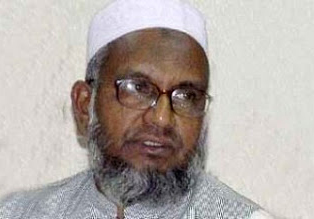
Dec 10, 2013 | News
The ICJ urgently calls on Bangladesh President Abdul Hamid to intervene to stop the execution of Abdul Quader Mollah.
The Supreme Court handed down its judgment against Abdul Quader Mollah on 5 December 2013.
The 790-page judgment was sent to the International Crimes Tribunal on 8 December 2013 and a death warrant was issued against Abdul Quader Mollah (photo) on the same day.
It was immediately sent to the Dhaka Central Jail and he may be executed at any time unless President Abdul Hamid or the Supreme Court intervenes.
Last week, the United Nations High Commissioner for Human Rights Navi Pillay issued a statement, expressing her deep concern over the rising levels of political violence in Bangladesh, calling on both sides to ‘’halt their destructive brinkmanship.’’
‘‘In an increasingly volatile situation, executing Abdul Quader Mollah risks pushing the Government towards a state of emergency, placing democracy and rule of law in peril,’’ said Ben Schonveld, ICJ South Asia Director. ‘‘The timing of the Supreme Court’s decision and the Tribunal’s subsequent death warrant raise serious questions about the political motivations behind the ICT process as well as the independence and impartiality of the judiciary.’’
The ICJ is concerned that the International Crimes Tribunal has not adhered to international standards.
As a State party to the International Covenant on Civil and Political Rights, Bangladesh is obligated to guarantee the right to a fair trial to all suspects, which includes special protections for those facing the death penalty.
The ICJ considers the death penalty to constitute a violation of the right to life and the right to be free from cruel, inhuman or degrading punishment.
It calls on the government of Bangladesh to impose a moratorium on the carrying out death sentences with a view to abolition, in compliance with repeated United Nations General Assembly resolutions on the question.
“The use of the capital punishment is particularly egregious in the Abdul Quader Mollah case, given that Parliament retroactively changed the law to enable the Supreme Court to impose a sentence of death on appeal,’’ added Schonveld. ‘‘Retroactively changing laws to influence the outcome in a case not only goes against the prohibition on retroactivity, it undermines the independence of the judiciary and the judicial function.’’
The ICJ urges President Abdul Hamid to intervene to stop the execution of Abdul Quader Mollah.
CONTACT:
Ben Schonveld, ICJ South Asia Director (Kathmandu), t:+97714432651 ; email: ben.schonveld(a)icj.org
Sheila Varadan, ICJ International Legal Advisor, South Asia Programme (Bangkok), t: +66857200723; email: sheila.varadan(a)icj.org
BACKGROUND:
Political violence has continued to escalate in Bangladesh
Abdul Quader Mollah was indicted on six counts of crimes against humanity before the International Crimes Tribunal (ICT). On 5 February 2013, the ICT rendered its verdict, finding him guilty on five counts and acquitting him on the sixth count. The ICT sentenced him to life imprisonment on two counts for his involvement in the Alubdi mass murder and the murder and rape of a family. He was sentenced to 15 years imprisonment on the remaining three counts.
At the time of the verdict, section 21(2) of the International Crimes (Tribunal) Act 1973 did not permit the Prosecution to appeal a sentence to obtain a heavier sentence.
The ICT verdict in the Mollah case sparked widespread protests, drawing tens of thousands of protesters to Shabagh Square, demanding that Mollah be sentenced to death.
Responding to public outcry, on 14 February 2013, the Parliament of Bangladesh drafted an amendment to change Section 21(2) of the International (Crimes) Tribunal Act 1973 to allow Prosecution to appeal a sentence in a conviction to seek a heavier sentence. The amendment was passed on 17 February and deemed to apply retroactively from 14 July 2009.
Acting on the basis of the Amendment to Section 21(2), the prosecution appealed the life sentences given to Mollah, seeking the death penalty. The prosecution also appealed the acquittal handed down. The defence in turn appealed the convictions on the five counts.
On 17 September 2013, the Appellate Division of the Supreme Court issued an oral decision with no reasons overturning the acquittal and entering a conviction; overturning one of the life sentences and imposing a sentence of death; dismissing the appeal made by the defence.
On 5 December 2013, the Appellate Division of the Supreme Court issued its 790-page judgment giving its reasons for overturning the life sentence and handing down the death penalty. The 790-page judgment was forwarded to the ICT-2 on 8 December 2013. The ICT-2 then issued a warrant of death against Abdul Quader Mollah and sent it to the Central Dhaka jail to be executed.



